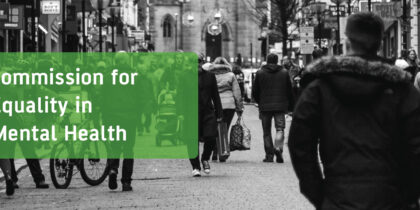By David Woodhead
It was 1 December sometime in the late 80s or early 90s. I can’t remember exactly. There were several hundred of us there, braving the cold of early evening.
We were on the Embankment in London. Or close to Trafalgar Square. I can’t quite recall. And we were holding candles. Hot wax dripped onto my gloves; it solidified immediately in the cold and stuck to the wool.
The night drew in quickly and the cold air swept up off the Thames. We huddled together, subdued and battle weary. We leant against each other, held each other up. The noises of the city kept us safe somehow. Grumbling cars. The ache of distant sirens. A shrieking child.
I was there with friends. Our lapels were heavy with badges. Stop the Clause. Support a woman’s right to choose. Silence = Death. There were people grieving, broken and tearful. Others were ill – pale and frail, some in wheelchairs, some with purple marks on their faces, not birth marks as once I had assumed, but cancerous lesions.
Just as a guy stood up at the front of the crowd and started to talk – ‘this is the biggest public health threat we have ever faced’ – a man in his thirties crossed the street and ran towards us. ‘Queers’, he screamed, ‘dirty AIDS carrying queers’.
And then, without prompt, people began stepping forward and calling out the names of people they had lost. ‘My best friend Chris’. ‘My partner Richard’. ‘My little brother Dev’. A woman standing behind me started to say someone’s name and, halfway through, put her hand to her mouth and began to cry. One guy said, ‘all those people whose families refuse to tell the truth’.
I stared at the flickering yellow ghost in my hand, so fragile and temporary, and tried to protect it from the wind and the cold.
Facing the stigma
I had come out a few years before. The fun of finding new friends, the joy of finding my tribe and finally being able to be myself were underpinned by a deep and morbid fear. I carried it around with me. HIV was our constant, unwelcome companion. And I’d lay awake, turning questions over in my head.
What would it do to my family? The shame for them would surely be too much to bear. What gossip would it feed in the small town where I grew up? What would people think of me?
For gay men of my generation, HIV stigma fed the persistent and florid homophobic narratives that we weren’t worth very much at all. In fact, we were a big social and moral problem, an horrific threat. Dying of AIDS would confirm what I had been told all my life – by politicians and media, by priests and teachers, by classmates and people I worked with – that being gay was deviant, and getting HIV was my just deserts.
The big problem with stigma is that it doesn’t stay outside of us. It gets inside. It needles its way under our skin. It reprograms the way we see the world. It chips away at how we feel about ourselves. It influences the decisions we make and the actions we take. It infuses every part of our lives, seeps into our relationships. It turns happiness into fear, hope into despair. And its effects can last a lifetime.
This was a lot for someone in their early twenties to carry. Little wonder I spent much of the next decades depressed and anxious, resistant to thinking about the future, excessive in my social life, and hiding of my sadness.
Testing HIV positive
I still wonder why I waited so long to test when I knew, in my heart of hearts, that I was positive.
When I thought about testing, I didn’t think of the positive messages that HIV drugs would save my life, or that I would be relieved of the uncertainty and fear, or that my quality of life would improve, or that I could have sex, safe in the knowledge that I could not infect my partner.
In my mind’s eye, I saw the emaciated bodies of people with AIDS. I heard the hate filled tirades of politicians and clergy, the screaming headlines of the tabloid press. And I experienced the deep fear of letting people down, of being shunned, and of losing my financial security.
I relived the fear and pain I experienced so many years before.
Hope restored
The U=U (Undetectable=Untransmissible) campaign makes the case clearly. The meds suppress the virus in our system to the point where it does us minimal harm and, importantly, is untransmissible. And so we are no longer infectious. This is hugely important for our physical health and that of our partners.
It is also important for our mental health. Knowing that we are well and not infectious can help smash the stigma that so many of us bore for so long. It can disrupt the narratives of hatred and fear and relieve us of the anxiety and depression that anti LGBTQ+ sentiment creates.
I am still here. Still holding candles and hoping for a better future. Still taking my meds. Still writing blogs. I am still sharing my story in the hope that hate can be replaced by love. Fear with understanding. Intolerance with acceptance.
Smash the stigma. And spread the word. Undetectable=Untransmissible.






